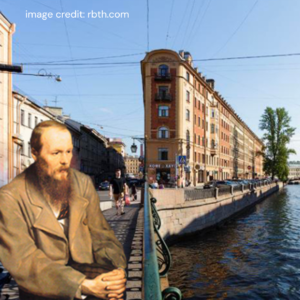Dostoevsky’s Crime and Punishment: A Weighty Problem


Dostoevsky’s Crime and Punishment: A Weighty Problem
By Jaanu
I must admit I was quite intimidated to read Crime and Punishment. I don’t enjoy a punishing book. It’s children’s literature and mysteries that appeal to me – heartwarming, moral stories, instilling hope and delight. The Hobbit, The Lord of the Rings books, Calvin and Hobbes, Tintin, Sherlock Holmes – these are books I will always enjoy. I like thought-provoking books that are still uplifting, even if some make tears sting: When Breath Becomes Air, The Things They Carried, The Brain’s Way of Healing, Hacking Darwin. But I’m almost afraid to read books that end in sorrow and destruction, or that weigh on me for the duration of the narrator’s adventures.
punishing book. It’s children’s literature and mysteries that appeal to me – heartwarming, moral stories, instilling hope and delight. The Hobbit, The Lord of the Rings books, Calvin and Hobbes, Tintin, Sherlock Holmes – these are books I will always enjoy. I like thought-provoking books that are still uplifting, even if some make tears sting: When Breath Becomes Air, The Things They Carried, The Brain’s Way of Healing, Hacking Darwin. But I’m almost afraid to read books that end in sorrow and destruction, or that weigh on me for the duration of the narrator’s adventures.
Crime and Punishment is one I was right to dread, honestly. It was a heavy read, not only because it literally weighed ten pounds in my backpack, and I had to lug it around everywhere. No, it was heavy: asking heavy questions about the nature of humanity, about morality, questioning conscience and contrasting self-preservation and honesty. The famous main character, Raskolnikov, commits a crime. Remarkably, the crime occurs within the first fifty pages of the enormous book. It stands to reason that the rest of the book is about the punishment. I think it’s worth the read, if only to consider the moral questions we don’t always think about. It’s a challenge that could be worthwhile. 🧳









